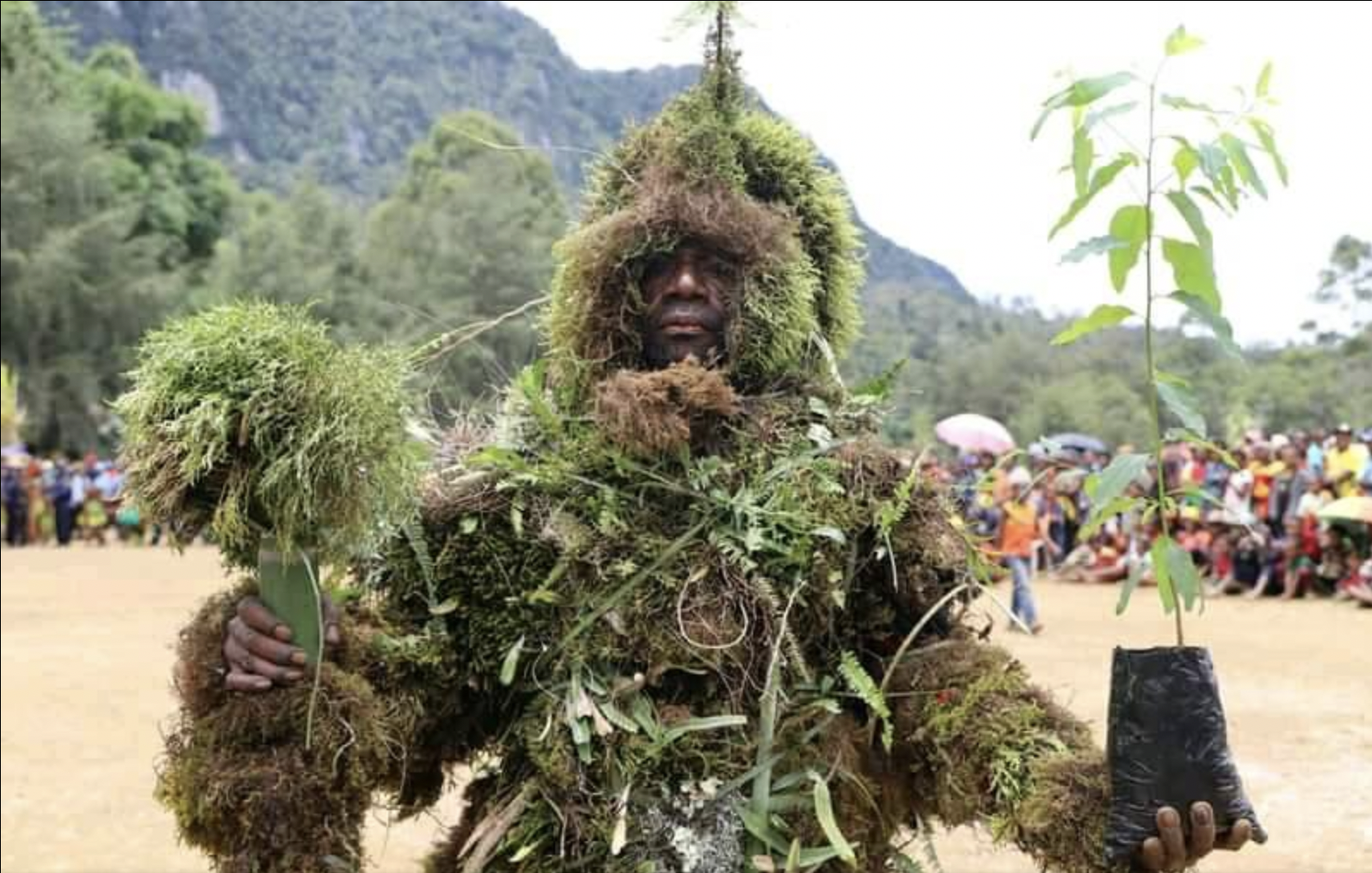How Indigenous women tackle the climate crisis
The fight is local
October 14, 2022

Xikrin women sell babassu oil and handicrafts to support themselves and to protect their forest environment.
For the Xikrin people of Brazil, wellbeing and the natural environment are inseparable. “The forest is our home! It is in the forest that we are born, we grow, we build our families and raise our children,” they say. “It is the forest that gives us food and medicine. Where we build our history and our culture that is our life. Protecting and defending the forest is taking care of our homes and preserving our lives.”
So when construction and development started to take place around the forest, women from the “Mẽbêngôkre” community, or “people from the great water”, along the Amazon River, were the first to act. Much of their territory has already been lost, they explain. But: “We fight for the conservation of the forest and biodiversity, so that our children have a healthy life.”
To ensure the long-term protection of their home, in 2003, the Xikrin women founded the Associação Bebô Xirin do Bacajá. It’s an initiative that promotes babassu oil and handicrafts as an economic alternative for Xikrin people, improving their quality of life and social well-being while protecting the land from deforestation.
Babassu oil is extracted from the kernels of the native babassu palm, also known as the “tree of life”. It’s used in skin and hair care regimens, and for cooking.

The initiative aims to incorporate all the villages in the Xikrin territory. It keeps the forest intact and helps the community to raise awareness of their right to protect it.
Sisters together
By producing and selling hand-painted fabrics, bags and backpacks and babassu oil, the women have successfully generated income through local markets and on social media. By anchoring their small business and contributing towards the green economy, they are expanding the babassu supply chain through their sustainable commodity production.
The initiative, which also includes men and has a goal to incorporate all the villages in the Xikrin territory, keeps the forest intact, while making money, which also helps the community to monitor their territory and raise awareness of their rights to protect it.
Women are critical for food production yet this example highlights the struggle that many women, especially in rural areas, face in maintaining their land rights, resources, finances and decision-making opportunities. If the world is to have food systems that are more sustainable and equitable, small-scale production systems will be key to progress. Yet, less than 20 percent of landholders are women, even though they make up almost half of the world’s agricultural labour force.

Ocean Revolution Moçambique works with communities to protect vital mangrove and seagrass in Inhambane Bay
Science and Indigenous knowledge
In Mozambique, Ocean Revolution Moçambique has been supporting Indigenous peoples of Inhambane Bay, including small scale and rural fisherwomen and men, to generate income and protect their ecosystem. It trains communities to preserve and protect vital mangrove and seagrass habitats in the Inhambane Bay, while also connecting them with other income generating options which build their resilience to the increasing severe effects of climate change.
The work through a partnership with a local university includes advanced academic degrees in archeology, aquaculture, environmental engineering, coastal management, running non-profit organizations and marine biology, with scholarships available for girls. Some community members have become certified divers or marine biologists, creating jobs in marine science and tourism to bridge the gap between science and Indigenous knowledge.
Luisa Emidio, now learning to become an electrician, took part in a workshop to learn how to carry out truck repairs. “With the money that I get, I can buy airtime, clothes, and also pay for my transport. My brothers are still studying. When they need something for school, I give it to them to buy school supplies. I would like to have a small workshop, and I would like to continue working on the trucks,” she says.

Lucia Amosse, Morrumbene, a fisher, tests the water quality of Inhambane Bay.
Towards a new green economy
Around the world, Indigenous women are driving economic change by investing in nature-positive solutions and businesses. In Papua New Guinea, the Mauberema Ecotourism, Nature Conservation, Education, Research & Training Centre brings together tribal groups, and in particular women, to build nature-positive enterprises –including a large ecotourism venture.
Eight communities to sustainably manage 665 hectares of a biodiversity hotspot. Through partnerships with local universities and international conservation organizations, local young people, and especially girls, are trained to lead conservation efforts around the Mauberema ecosystem, while earning money. From Indigenous crop cultivation to coffee, non-timber forest products and an ecotourism lodge, nature-based enterprises integrate Indigenous values and practices, traditional knowledge, and income generation into their conservation methodology.

The Mauberema Ecotourism, Nature Conservation, Education, Research & Training Centre brings together tribal groups, and in particular women, to build nature-positive enterprises.
Improving the lives of rural women is key to fighting inequality, poverty and hunger. Supported by the Equator Initiative, and the Global Environment Facility Small Grants Programme, these women are among those taking local action to improve the lives of the wider community. Their efforts are testament to the pivotal role of local action in combating climate change, triggering the transformations needed to address the multifaceted nature of the crises the world faces.

 Locations
Locations


